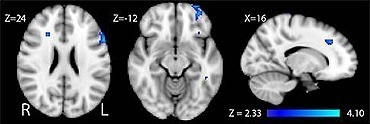Posts Tagged ‘physical exercises’
Promoting Healthy, Meaningful Aging Through Social Involvement: Building an Experience Corps
(Editor’s note: Pathways responsible for higher-order thinking in the prefrontal cortex (PFC), or executive center of the brain, remain vulnerable throughout life—during critical early-life developmental windows, when the PFC fully matures in the early 20s, and finally from declines associated with old age. At all ages, physical activity and PFC-navigated social connections are essential components…
Read MoreExperience Corps: Promoting Healthy, Meaningful Aging Through Social Involvement
The current issue of Cerebrum –a great publication of the Dana Foundation– includes the excellent in-depth article Promoting Healthy, Meaningful Aging Through Social Involvement: Building an Experience Corps, written by researcher Michelle Carlson: “Over the last decade, scientists made two key discoveries that reframed our understanding of the adult brain’s potential to benefit from lifelong…
Read More

